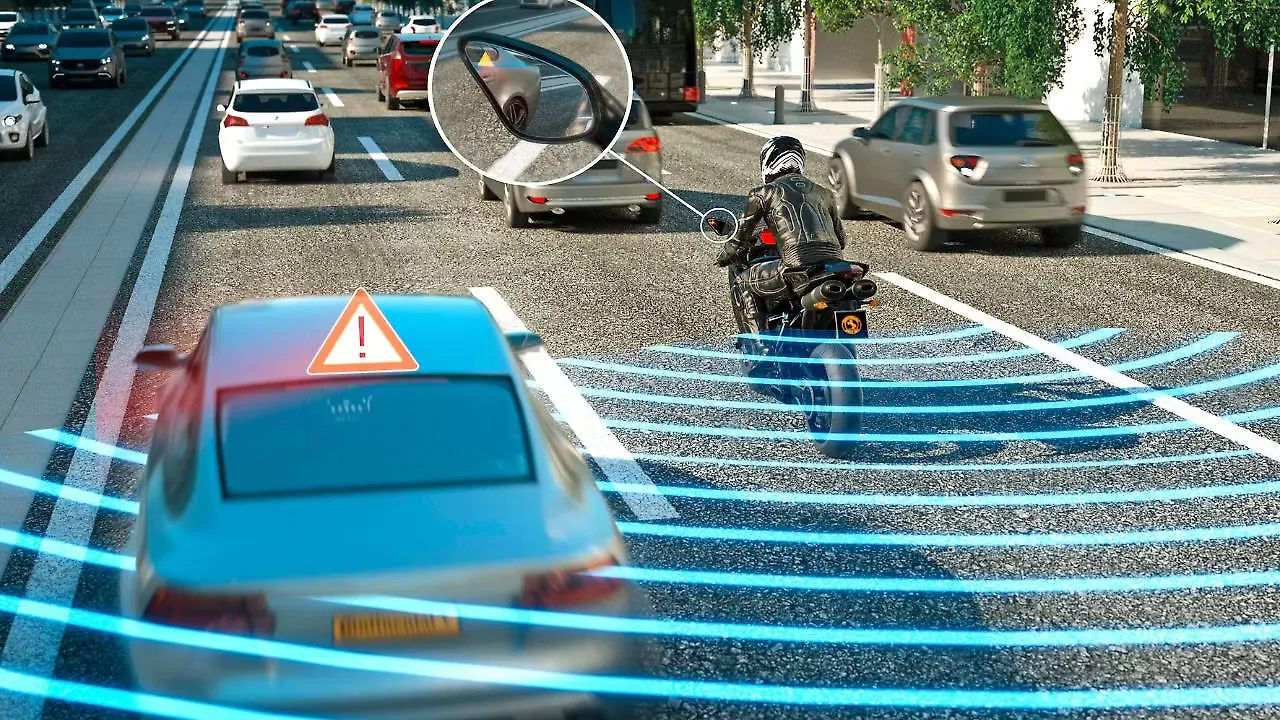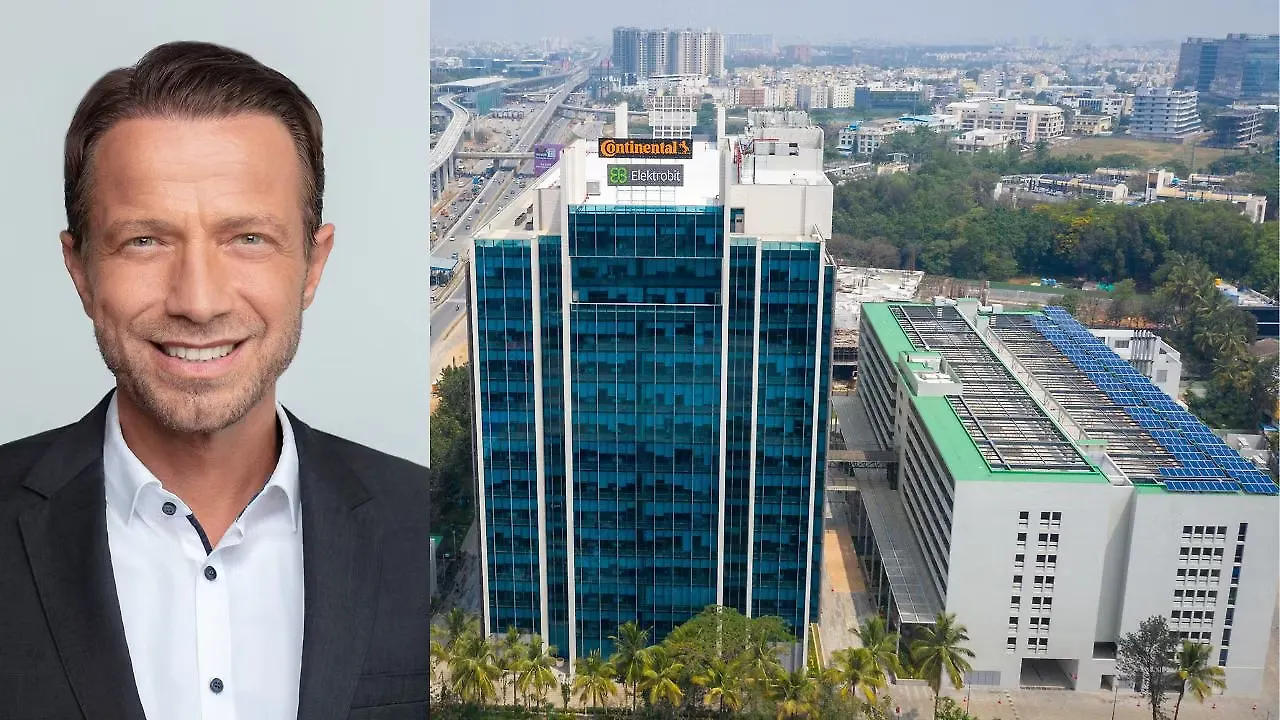
On a bright and sunny day last week at Continental India’s headquarters in Bengaluru, Ismail Dagli, Head of the Autonomous Mobility Business Area at Continental AG, sat down for a chat with this writer in a conference room named after the pioneering Indian mathematician-astronomer Aryabhata.
Dagli was in India to celebrate ten years of the Autonomous Mobility Business Area's engineering presence at the company’s Technical Center India (TCI). The goal of the autonomous mobility business area is to achieve ‘zero’ accidents, a concept fittingly discussed in a room named after Aryabhata, who introduced the concept of ‘zero’ to the world.
According to Dagli, “This is a very emotional event for us. We began this journey in 2014, and our team has now grown to over 2,000 engineers focused solely on autonomous mobility.” The team is dedicated to providing global solutions while also supporting the local market with exceptional expertise.
Today, the TCI engineering team boasts niche skills in areas such as radar, computer vision, data analytics, cybersecurity, functional safety, and AUTOSAR. From India, they support and lead numerous base platform and customer projects across various regions, in addition to serving the Indian market.

For Continental, India serves not only as a significant customer base but also as a vital competence centre supporting its global operations. As Dagli explained, the synergy between the market's importance and the country's skilled, educated workforce is invaluable to Continental. He anticipates that the players in India will assume an even larger role as the market expands and new technologies emerge. 'We will not be able to leverage this trend if we don't have the right skills and expertise in this market. We are fortunate to have started early, and we now have a substantial workforce in India,' he said.
Evolving Customers
Dagli emphatically stated, 'If you look at the new cars, it's clear they have evolved significantly. We see advanced technologies offered at reasonable prices for the Indian market. When you travel in the latest cars in India, you often find features and functions that are impressive and well-integrated. In recent years, Indian customers have become highly knowledgeable about technological innovations. It's truly enjoyable to work here,' he asserted.
Mass production that brings technologies to scale and customisation are crucial, he emphasised. He firmly believed that adapting scalable products, particularly for convenience functions, is necessary. Scalability is vital to meet the quality and pricing demands of the Indian market. Given the unique traffic conditions, safety functions must also be tailored for the market. Therefore, the company’s strategy is to work closely with its customers in India to develop market-specific solutions. He did not support the idea of introducing solutions in India solely to achieve scale; this might have worked in the past when no alternatives were available. However, current acceptance indicates that this is not the right approach. It is essential to rely on dedicated technologies and competencies, and perhaps parts of the software stack that can be reused, to customise solutions based on Indian use-cases. Driving conditions and drivers in India are different, and some market solutions may not be as well-received because they did not adequately consider affordability. 'I think some solutions in the market have lower acceptance because they were not well-adapted to the affordability factor,' he remarked.
The affordability factor will aid in scaling. At the same time, no one will pay for something that is not yet utilised. Therefore, it is crucial to enhance usage through customisation and achieve economies of scale through scalable architectures and reuse. These elements must come together, he pointed out.

ARAS Developed by TCI
A couple of years ago, TCI developed the Advanced Rider Assistance System (ARAS) – an assistance technology for two-wheeler riders. Dagli praised the centre’s efforts, noting that there is significant interest in this solution from customers in various regions, including Europe, the US, and Asia. Additionally, many new requests are coming in. As customers seek value-added ideas, features, and functions, these convenient functions might initially appear in high-end vehicles. 'I believe that some safety functions will soon become standard, driven by customer demand even without regulatory requirements. Once a customer sets standards for safety and convenience for riders, I believe it will eventually be adopted even in lower segments of two-wheelers. We are very proud of our inventions; this represents a tremendous opportunity. This might be the India story— a locally developed solution for Indian customers that we can now leverage globally,' he said.
More Developments
“TCI has developed several features in the parking domain specifically for the Indian market. Additionally, we have customised Level-2 features such as brake points, distances, and evasion techniques. While these innovations are tailored to India's unique requirements and may not be directly exportable to other markets, there could be similar markets with comparable needs that could benefit from these features,” he said.
Steering Ahead
The transformation at TCI has been tremendous, enabling it to handle base development, technology development, and application all from a single location. According to Dagli, this is a rare achievement, as it integrates all three aspects into one streamlined process. 'It took a while to reach this level, but we are proud that we have achieved this feat,' he remarked. TCI is now self-sufficient, with the capability to manage projects globally across various customer segments.
“We have developed many outstanding elements at TCI, particularly in India. We possess niche competencies, and this is part of a broader footprint strategy where these capabilities are led from India on a global scale. We have significant and deep knowledge in many areas at TCI. There aren’t many locations that can handle the complete scope. Imagine about 2,000 engineers capable of managing the entire process—that is quite niche,” Dagli concluded.
Also Read:
Continental Unveils Cross-Domain High-Performance Computer For Cars
India Is A Crucial Market For Growth, Success Of Continental Tires: Samir Gupta